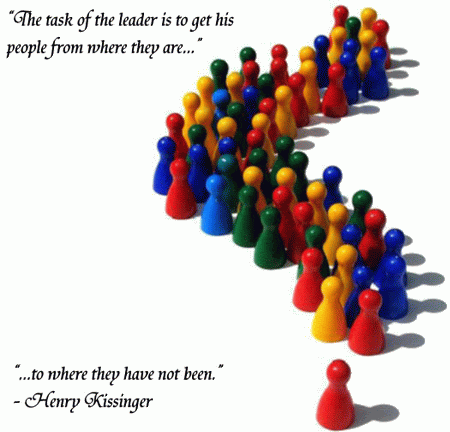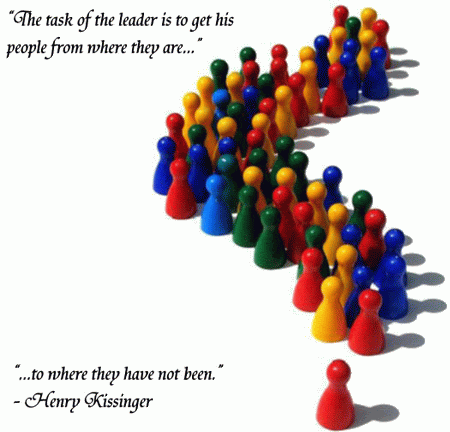What's A Speaker Manufacturer To Do?
Back in the days when Hi Fi ruled the audio world, the pursuit of the ultimate sound quality was a near singular vision among the best of the...

 As leaders, innovators, and fellow citizens, our greatest responsibility to one another is to be able to put our differences aside and work together to solve problems. This concept is often difficult to grasp because we are constantly exposed to the exact opposite; people fighting, nations feuding, leaders unable to get along.
As leaders, innovators, and fellow citizens, our greatest responsibility to one another is to be able to put our differences aside and work together to solve problems. This concept is often difficult to grasp because we are constantly exposed to the exact opposite; people fighting, nations feuding, leaders unable to get along.
All of these problems stem from a basic fault in communication – the refusal to encourage ideas that may differ from one’s own. Although the remedy for this worldwide dissension is seemingly simple, implementation is key. Our responsibility to each other is to learn to accept others as they are; to implement this as a leader, you must accept what you can’t change, learn to listen, and create a solution based on all presented ideas.
The first step toward meeting this responsibility is accepting the fact that you can’t and shouldn’t change others. Every person on this planet is incredibly and amazingly different, and these differences are part of what makes our race unique. Instead of condemning those with different viewpoints, we need to be able to prosper and learn from one another, while still maintaining our own values. As leaders, we work with multitudes of people who can vary in many ways in aspects such as religion, educational background, ethnicity, or age. Instead of viewing these differences as obstacles, we must learn to treat them as further proof of the complexity of the human race; instead of arguing incessantly about qualities that we can’t change about someone, we must learn to use these characteristics to our advantage and form new, innovative solutions to problems.
As leaders, it is often difficult for us to find the ability to listen, yet this is possibly a greater skill than speaking – as the saying goes, God gave us two ears and one mouth for a reason. Instead of trying to get all of your ideas into the open at once, one of our greatest responsibilities is learning how to put ourselves aside at times and take the voices of others into account. After all, if you have an abundance of ideas to share, imagine that everyone else in the room has just as much to say, if not more. Good leaders will never become great leaders without the ability to listen to those around them and take the opinions of others into account when making decisions.
The final step in meeting this responsibility is combining the work of many into a solution for all. We do this not by working in solitude or presenting only one set of ideas; rather, you must include every different perspective and opinion in order to form the most universally effective solution. This includes not only listening and accepting, but also the wisdom and judgment to know how to satisfy many needs. In the long run, true leaders don’t rise to power based on their listening skills or their open mind – leaders succeed based on their ability to present effective and useful solutions to a common problem.
by J. Hallbauer
###

Back in the days when Hi Fi ruled the audio world, the pursuit of the ultimate sound quality was a near singular vision among the best of the...

Little kids love a good story, of that there can be no denying.

"The world today is not so gay. Fighting and bickering all the way. Who knows when war may start and tear this mad old world apart? Some men fight...